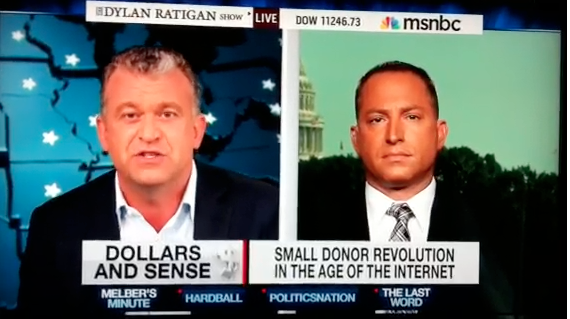Next week President Obama will be talking about a plan to create jobs in America. Finally a subject both parties should be able to agree upon; jobs! The premise behind his action is correct, however his focus is not.
While we are in favor of improvements that advance our education system and infrastructure to keep us competitive in the world, the real long-term opportunity to pull us out of this recession lies in the hands of our nation’s entrepreneurs and the confidence we as a nation have to help them succeed.
Both the SBA and the Kauffman Foundation for Entrepreneurship will tell you that the bulk of net new jobs (those jobs created less jobs lost) during prior recessions came from small businesses and entrepreneurs.
So logically, helping foster the entrepreneurial engine in the USA will foster innovation, businesses and jobs; undoubtedly in a multiple of what our government can do through public stimulus.
However, the traditional capital that our nation’s entrepreneurs used prior to the financial meltdown has disappeared – I know I tried to raise capital for 2 ideas I have and I’m a seasoned three-time INC500 entrepreneur.
There’s a solution gathering support and it only exists today because of advances in the Internet and Technology. It is based on Crowdfunding where entrepreneurs pitch their ideas to average Americans and let them decide which ideas they would back with a few dollars in exchange for an equity stake in the company.
This form of investment is illegal in the USA because it breaks 80 year-old Security Laws on public solicitation and accreditation. However, American’s today are more sophisticated than they were 80 years ago, they have seen the financial crisis firsthand and are more skeptical than ever before freely giving away their hard earned cash. Go ahead, try and ask a group of 1,000 people for $50 each and see how successful you are.
If we can update the security laws to make equity-based Crowdfunding (aka Crowdfund Investing) legal, then we can put the power in the hands of the American people to decide which of their community entrepreneurs they want to back and those that they do not. The ones that rise to the top will not only have access to a small amount of critical seed capital that doesn’t exist in the markets, but knowledge, experience and marketing power from their supporters. Think about it. If you own Apple stock chances are you have an iPhone and rave about it. Subsequently, if you want to back your friends Korean BBQ Food Truck or Internet Startup, chances are you will not only be a consumer but an advisor and marketing agent for them as well.
Direct ownership will not only increase the chance of success (as social networks have time and again shown the ability of the crowd to rally behind an idea) but first-hand ownership will help entrepreneurs succeed thru shared knowledge and experience. More small successes will lead to an increase in consumer confidence, which is a direct economic indicator.
We are on the verge of a double dip recession. No one trusts our government. Let’s put something on the table that is good for the country that both side should be able to agree upon; a zero-cost framework that provides a limited amount of capital flow to entrepreneurs that has the ability to stimulate innovation and jobs, in a fashion that both mitigates risk and provides for investor protection.
 2930 passes with almost unanimous, rare bipartisan support! Â This is a HUGE achievement for every struggling entrepreneur and innovator out there that is looking for capital!
2930 passes with almost unanimous, rare bipartisan support! Â This is a HUGE achievement for every struggling entrepreneur and innovator out there that is looking for capital!




